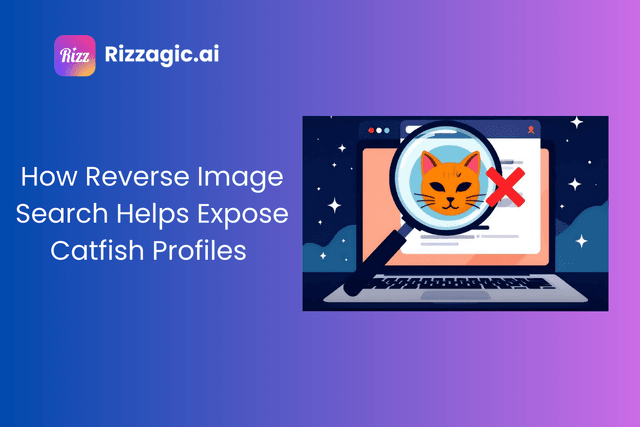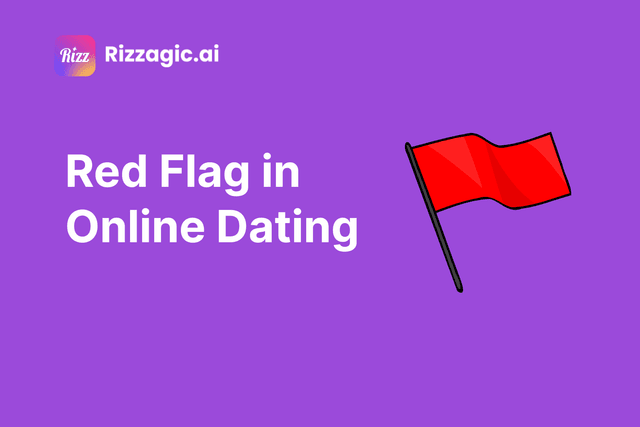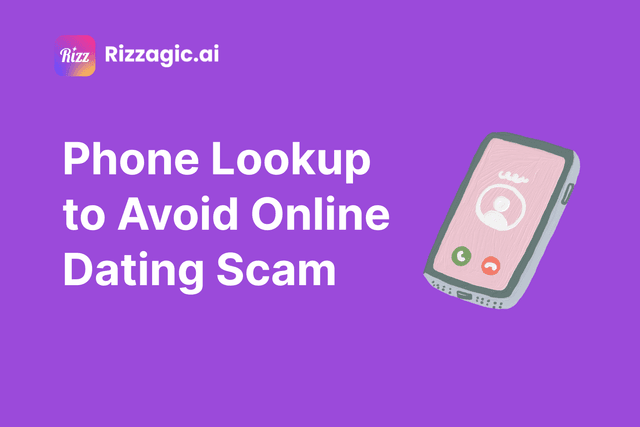- Home
- >
- Blog
- >
- Dating Safe
- >
- Article Details
How to Identify and Outsmart a Facebook Romance Scammer
It usually starts with a friendly message — a kind word, a shared interest, or a compliment that feels genuine. Soon the chat grows personal and warm. They tell you you’re special, that meeting you feels like fate. But the truth? The person behind the screen may not exist.
Facebook romance scammers are skilled emotional actors. They mimic empathy and build trust fast — not for love, but for control. The closer you feel, the easier you are to manipulate.
Real protection doesn’t come from paranoia; it comes from awareness. Once you know how these scams work and the red flags to watch for, you can stop a fake romance before it starts.
What Is a Facebook Romance Scam?
A Facebook romance scam is a form of emotional deception where someone pretends to be in love to gain money, gifts, or personal information. Unlike obvious phishing or spam, this scam feels personal — it builds slowly, wrapped in compliments and affection. The scammer creates a fake identity using stolen photos and fabricated stories, often posing as a soldier, doctor, or business professional to appear trustworthy.
Their playbook is simple but effective: build emotional dependence, isolate the victim from friends and family, then introduce a crisis that requires help — a flight delay, medical emergency, or sudden investment opportunity. The emotional connection makes it hard to see the manipulation until it’s too late.
Romance scams on Facebook have become one of the costliest forms of online fraud worldwide. Thousands of people each year lose not only money but also self-confidence and trust. Understanding that these scams are psychological — not just financial — is the first step toward staying safe.
The Common Tactics Scammers Use on Facebook
Romance scammers don’t rely on luck — they rely on patterns. Every fake profile follows a psychological script designed to create connection, dependency, and eventually, compliance. Here are the tactics you’ll most often see:
1. Stolen Photos and Borrowed Identities
They start with an attractive, trustworthy persona — often a soldier, engineer, doctor, or entrepreneur. The photos look professional, the life seems stable, and the story feels believable. In reality, these images are taken from real people’s social media or even stock photo sites.
2. Love Bombing and Rapid Intimacy
From the first few messages, they shower you with affection: “You’re my soulmate,” “I’ve never felt this way before,” or “I can’t stop thinking about you.” The goal is to create emotional attachment before logic has time to step in.
4. Isolation from Others
Once you’re emotionally hooked, they subtly discourage you from talking about the relationship. “Your friends wouldn’t understand us,” or “Let’s keep this between us for now.” Isolation makes manipulation easier and cuts off outside reality checks.
5. Money, Help, or Investment Requests
Eventually, there’s always a “problem.” They’re stuck overseas, their wallet was stolen, their child needs surgery, or they found a quick investment deal. They don’t ask directly at first — they plant stories that make you offer help.
6. Avoidance of Verification
The moment you ask for a quick video call or want to connect on another platform, the excuses begin: “My camera’s broken,” “I’m shy,” “Let’s do it later.” Consistent avoidance is the most reliable red flag.
7. Shifting Stories and Inconsistent Details
The job title changes, the timeline doesn’t add up, or they “forget” what they said earlier. Each small inconsistency points to a script, not a real person.
Scammers know that emotion can override logic. Their success depends on speed — the faster they make you feel connected, the less time you have to verify. Recognizing these patterns early is how you stop the game before it starts.
How to Identify a Facebook Romance Scammer
Spotting a Facebook romance scammer isn’t always easy — they sound genuine, act attentive, and often appear more consistent than real people. But if you look closely, small cracks always show. Here’s how to recognize them before they gain control:
1. Check the Profile Carefully
Start with what you see. Most fake profiles share the same traits — a small friend list, minimal personal posts, perfect photos, and no real interactions. The profile may have been created recently, with posts dated within weeks or months. Look for signs of unnatural engagement, like dozens of comments from strangers or copied captions.
2. Run a Reverse Image Search
Download their profile picture and search it online. If it appears on different accounts under other names — or worse, on modeling and stock photo sites — it’s almost certainly stolen. Tools like reverse image search can instantly reveal whether a photo is authentic or part of a scam network.
For a full walkthrough on how to verify profile photos effectively, see our guide on how to spot a catfish with a dating photo image search
3. Verify Their Story
Ask subtle, specific questions about places, time zones, or life events. Scammers rely on generalities — the more you dig, the more contradictions appear. If someone claims to be from New York but never mentions local details, or if their language doesn’t match their supposed background, it’s a red flag.
4. Check Contact Details
If they share a phone number, email, or username, use a reverse phone lookup to confirm it. Scammers often reuse the same contact information across multiple fake identities. A quick check can expose reused numbers or links to scam reports.
5. Watch for Emotional Acceleration
When someone says “I love you” after a few days or starts talking about marriage before meeting, that’s not romance — it’s manipulation. Real relationships grow gradually; fake ones rush intimacy to build trust fast.
6. Trust the Feeling of Discomfort
If something feels slightly off — their tone, timing, or behavior — listen to that instinct. Scammers exploit politeness and empathy. You don’t owe anyone continued conversation when your gut says something’s wrong.
Identifying a scammer isn’t about being suspicious of love; it’s about being aware that real love doesn’t hide, hurry, or pressure. When someone resists verification or builds emotion too fast, that’s not connection — that’s choreography.
What to Do If You’ve Been Targeted
Realizing you’ve been targeted by a Facebook romance scammer can feel humiliating, confusing, even heartbreaking — but the worst thing you can do is stay silent. Scammers rely on shame to keep victims from acting. Here’s what to do immediately if you suspect you’ve been caught in a fake romance:
1. Stop All Contact Immediately
Don’t argue, don’t explain, and don’t try to expose them. Scammers are skilled manipulators — any response gives them another chance to control the conversation. Block the account and end all communication across platforms.
2. Save Every Piece of Evidence
Take screenshots of chats, photos, phone numbers, and any payment receipts or gift card requests. Even if the scammer deletes their profile, your records will be crucial for reporting and preventing further damage.
3. Report the Account to Facebook
Use Facebook’s built-in “Report” option on the scammer’s profile or messages. Choose “Fake account” or “Scam.” This helps the platform flag connected accounts and reduce similar attacks on others.
4. Report to Authorities or Scam Databases
If money was involved, file a report with your local consumer protection agency or national fraud authority.
- In the U.S.: FTC.gov/complaint
- In the U.K.: Action Fraud
- In Australia: Scamwatch.gov.au These agencies can track patterns and warn others.
5. Protect Your Own Accounts
Change passwords for Facebook, email, and any financial apps you used while communicating. Enable two-factor authentication. Scammers sometimes attempt follow-up attacks using saved data.
6. Check if Your Photos or Info Are Being Misused
Scammers often reuse victims’ pictures to build new fake accounts. Run a quick reverse image search or use Rizzagic’s Profile Protection Scan to see if your images appear elsewhere online.
7. Don’t Blame Yourself
Romance scams work because they imitate trust and empathy — the very traits that make you human. Recognizing the deception and acting quickly is already a win.
💡 Remember: Silence protects scammers. Reporting and sharing your experience protects others. If someone has turned your kindness into a weapon, take back the power by exposing the lie — and never let it define how you love again.
X. FAQ — Facebook Romance Scams Explained
1.How can I tell if someone on Facebook is a romance scammer?
Look for the three big signs: they move too fast emotionally, avoid verification (no calls, no video), and eventually introduce money or “help” requests. If you feel rushed or pressured, pause — genuine relationships don’t demand blind trust.
2.Why are Facebook romance scams so common?
Because Facebook gives scammers everything they need — visibility, emotional context, and access to millions of potential targets. Scammers create realistic profiles using stolen photos and mimic how real people post, making detection harder.
3.What do Facebook love scammers usually ask for?
They often start with small favors — phone credit, “urgent travel funds,” or help with a temporary problem. Over time, they escalate to large money transfers, crypto investments, or gift cards. The story always sounds urgent and emotional.
4. Can I verify if someone’s Facebook profile is fake?
Yes. Check their timeline, tagged photos, and friend list. Then run a reverse image search to see if their photos appear under different names. You can also use a reverse phone lookup if they’ve shared a number — duplicate or recycled data is a major red flag.
5. What should I do if I’ve already sent money?
Act fast. Contact your bank or payment provider immediately to attempt a reversal. File a report with your local fraud authority (such as the FTC or Action Fraud). Keep all evidence — even if you can’t recover the money, it helps track organized scam networks.
6. Should I confront the scammer directly?
No. Scammers are trained to manipulate guilt, shame, and curiosity. Engaging gives them more psychological leverage. Block, report, and walk away — confrontation rarely leads to closure, only more control.
7. Are there tools that can help prevent romance scams?
Yes. Platforms like Rizzagic provide quick, private checks — from image and phone lookups to username matching — to confirm if someone’s identity is real before you invest trust or emotions.
8. Can a scammer use my photos or identity after contact ends?
Unfortunately, yes. Many scammers recycle photos from past victims to create new fake profiles. Regularly search your own photos or use an image monitoring tool to detect impersonation.
9. Is it safe to keep dating online after experiencing a scam?
Absolutely — but do it smarter. Take your time, verify early, and keep conversations on trusted platforms until mutual trust is built. Scams shouldn’t destroy your hope, only sharpen your awareness.
10.What’s the best mindset for safe online dating?
Stay open-hearted, but fact-driven. Love deserves transparency — not secrecy. Verify before you trust, and remember: if they can’t prove who they are, they don’t deserve your time.
Read More
People Also Enjoyed
Dating Safety in the Age of AI: How to Verify Profile Photos
Learn how to verify dating profile photos and avoid catfish scams in the age of AI. Discover practical dating safety tips to spot fake or AI-generated images.
2026-01-06
How Reverse Image Search Helps Expose Catfish Profiles
Learn how reverse image search can help detect catfish and fake online profiles, why it’s essential for online safety, and how tools like RizzaGic’s Catfish Reverse Image Search make verification easier and more accurate.
2025-12-15
Dating Site Scammer Photos: How to Check If Their Picture Is Real
Think you’ve met someone special online? Learn how to verify dating site photos, identify scammer images, and catch fake profiles before they break your heart.
2025-11-06
How to Identify and Outsmart a Facebook Romance Scammer
They say all love starts with a message — but not all are real. Learn how to spot fake Facebook lovers, verify profiles, and protect your heart before it’s too late.
2025-11-05
What’s the Number One Red Flag in Online Dating
If they dodge video, voice, or social proof, that’s your cue. Learn practical steps to verify matches and prevent catfishing and romance scams.
2025-11-04
How to Use Reverse Phone Lookup to Avoid Online Dating Scam
Before you text back or meet, run a quick phone number search. This step-by-step guide shows how to verify identities, detect scams, and protect your dating life.
2025-11-03
How to Verify Someone from a Dating App Using Their Username
How to verify Tinder, Bumble, or Hinge matches using Rizzagic’s Reverse Username Search — spot fake profiles, find hidden accounts, and stay safe online.
2025-10-23
How to Spot a Catfish with a Dating Photo Image Search
Think your match might be fake? Learn how to use Rizzagic’s Dating Photo Image Search to spot catfish, detect AI photos, and verify profiles safely.
2025-10-21